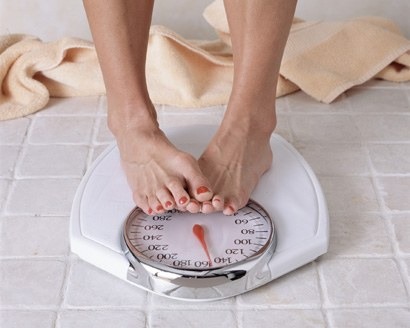Is Obesity Prejudice Making The Issue Worse?
America's obesity rate (which, according to the CDC, is 35 percent) has been blamed on a number of issues: Junk food advertising, parenting, exercise, etc. But Reuters suggests that part of the issue is the discrimination against obese or overweight citizens.
Even as a recent report suggests 42 percent of Americans could be obese by 2030, scientists studying obesity discrimination find that children often tell scientists that overweight people are "mean, stupid, ugly, and have few friends," Reuters reports.
A poll of adults found that 61 percent thought that "personal choices about eating and exercising" was the main cause for the obesity problem.
Researchers, however, feel that the environment is also a large factor, and blaming overweight men and women isn't helping the cause.
"As long as we have this belief that obese people are lazy and lacking in discipline, it will be hard to get support for policies that change the environment, which are likely to have a much larger impact than trying to change individuals," Rebecca Puhl of the Rudd Center for Food Policy & Obesity at Yale University told Reuters.
An Institute of Medicine Report about America's Obesity Crisis discusses the various factors that may be seen as the villain of the crisis: the parents, the government, the farm bill, and the fast-food industry all take turns taking the blame. However, William Dietz of the Centers for Disease Control and Prevention notes that changing the environment is necessary, despite the multiple factors.
"Moving from the frame of personal responsibiltiy to the broader frame of changing the environment to change behavior is a significant challenge," he said in the report.
Still, the public doesn't seem to agree as much. The same Reuters poll found that while 56 percent of adults polled wanted to limit unhealthy food advertisements or tax sodas, only 21 percent supported a ban on fast-food restaurants. Eighty-seven percent, however, favored requiring 30 minutes more a day of exercise in school.
Meanwhile, the Center of Consumer Freedom says the Institute of Medicine and other "food nannies" are "flatly arguing against consumers having any choice in their snacks and meals." Its stance on the issue? "Personal irresponsibility is to blame for obesity; personal responsibility is the only viable solution. We shouldn't promote policies that serve only to diminish it," the group proclaims on its web site.
